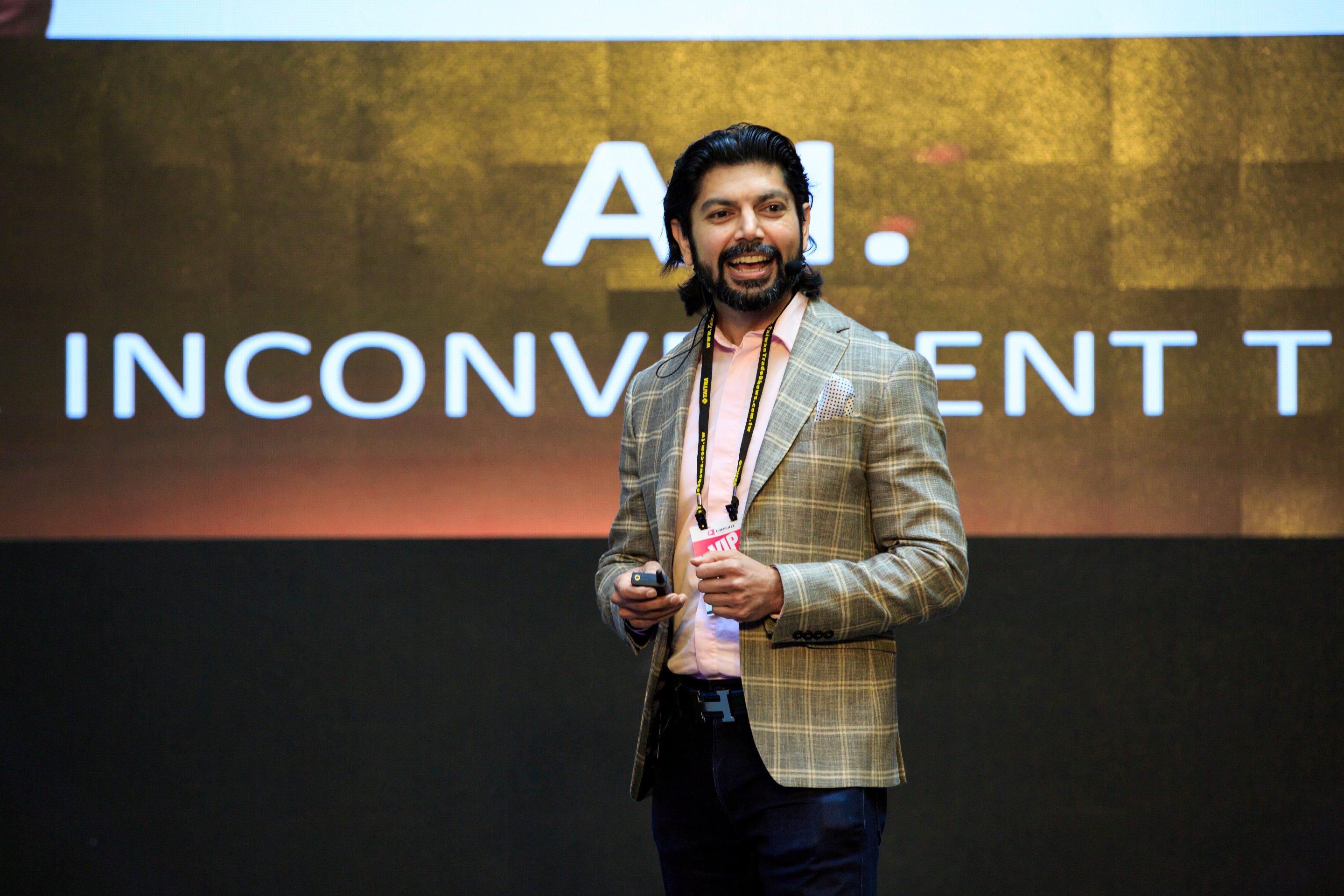
AI has been a popular, yet contested topic among the tech community. While some tout its existence as the bringer of the next step of innovation, some also dread its prominence as a destroyer of the status quo. In this keynote by Mr. Amit Pradhan, Founder & President of Silicon Valley Blockchain Society; he addressed the background of necessity and concerns of AI.
3 Inflection Points
Mr. Pradhan began his speech by outlying the 3 inflection points into today’s situation that are highly leveraged by Silicon Valley. The 3 points are: the invention of the Guttenberg press in 1450 which democratizes literacy and education; the birth of internet which democratizes communication; and the emergence of blockchain which decentralizes economy. Out of the three, blockchain and its applications, especially cryptocurrency brought forth an unprecedented point in history where the civilians can for the very first time create their own currency.
For AI, the first iteration is Handcrafted Knowledge where systems are programmed with as much information as possible. In the 2nd wave, AI combines supervised and unsupervised learning for a Statistical Learning. Most AI systems today are built on this model and are trying to reach the 3rd wave: Contextual Adaptation. AI will be considered to have reached this stage if the system in question has the cognitive ability to apply learned information everywhere.
It is in this third wave that AI starts becoming more controversial.
Privacy and Risk with AI
Many famous people in the tech community have started discussing AI. However, the narratives might put more emphasis on the threats of an existential risk rather than issues that affect people’s daily lives, such as privacy in the context of AI. To Mr. Pradhan, AI is more than just the new oil; it is the new nuclear fuel. The cognitive wave of AI means data can be used to do things that are exponential; more than just a commodity to trade.
Privacy in the world of AI is a great challenge as users are surrounded by devices which will collect data almost unceasingly and all data from consumers are consumed by big companies he abbreviated as GAFABATT: Google, Apple, Facebook, Amazon, Baidu, Alibaba, Tencent, and Tesla. He reminded that GAFABATT are not bad actors, they are commercial actors. When commercial actors are left unchecked, there might be another incident like that of Facebook and Cambridge Analytica.
Income in the World of AI
In the next 20 to 30 years, AI related automation will have taken 50% of today’s jobs. While AI will create 12-14% new jobs, this is not enough to mitigate the job losses; which will happen to every industry or every rank. The moment this loss of jobs happened, there will be no scarcity based models that can adjust the effects and it will not be able to be slowed nor regulated. As such, humans will need to find new ways that are steeped in abundance if they are to continue their way of life and still retain a form of income.
The concept of Universal Basic Income (UBI) took hold in Europe and North America; a concept where everyone by virtue of being a citizen will receive a basic income for them to live and also provide better opportunities for them to pursue their dreams and personal goals. However, this concept brought 2 main issues into question: Who will pay and what will be the used as the narrative?
Rather than UBI, he proposed a model where humans can be part of a value creation effort for generated data. Even in the world of AI, humans as users are still valuable due to the data they can generate. If humans can then join in the value adding process, this can be the birth of a new model: Universal Earned Income. This method can attract more than just humans whose jobs were lost; it can also get companies and government on board. Combining this model with blockchain will enable the data purchasers to buy the data directly from the data generators.
Long Term over Short Term
While Silicon Valley has been lauded as the center of innovation, Silicon Valley is more akin to a mindset than a location. It is an idea that does not stigmatize failure and appreciate diversity therefore attracting more talents and will provide anyone willing to solve problems with opportunities to create companies and use technologies to try and solve those problems at scale.
Unfortunately, the current incarnation of Silicon Valley has fallen into a pitfall where the minimum viable product is the goal rather than a stepping stone. Mr. Pradhan encourages founders to look at everything in a 10 year lens and focus on industries with good long term prospects. It does not matter if the industry seems rather plain in the short term, as long as it is a great opportunity for the future. If the industry can move humanity forward, it will also deliver the best returns.
He remarked that Taiwan is dominant in ICT and semiconductor and now is starting to get involved in AI and blockchain; both of which are great new opportunities. However, Taiwan should not aim to imitate Silicon Valley and following its footsteps can be counterproductive. What is needed to surpass Silicon Valley is to find a unique opportunity to look at the innovations in AI and blockchain and understand the underlying philosophy.
To watch the full forum session, visit our YouTube channel here.